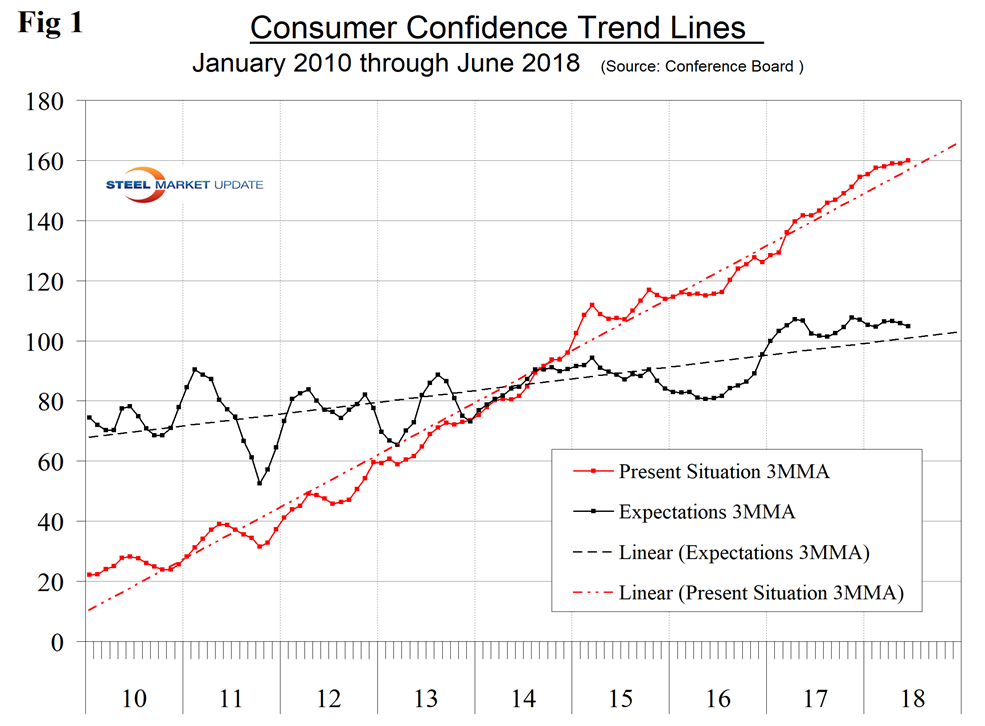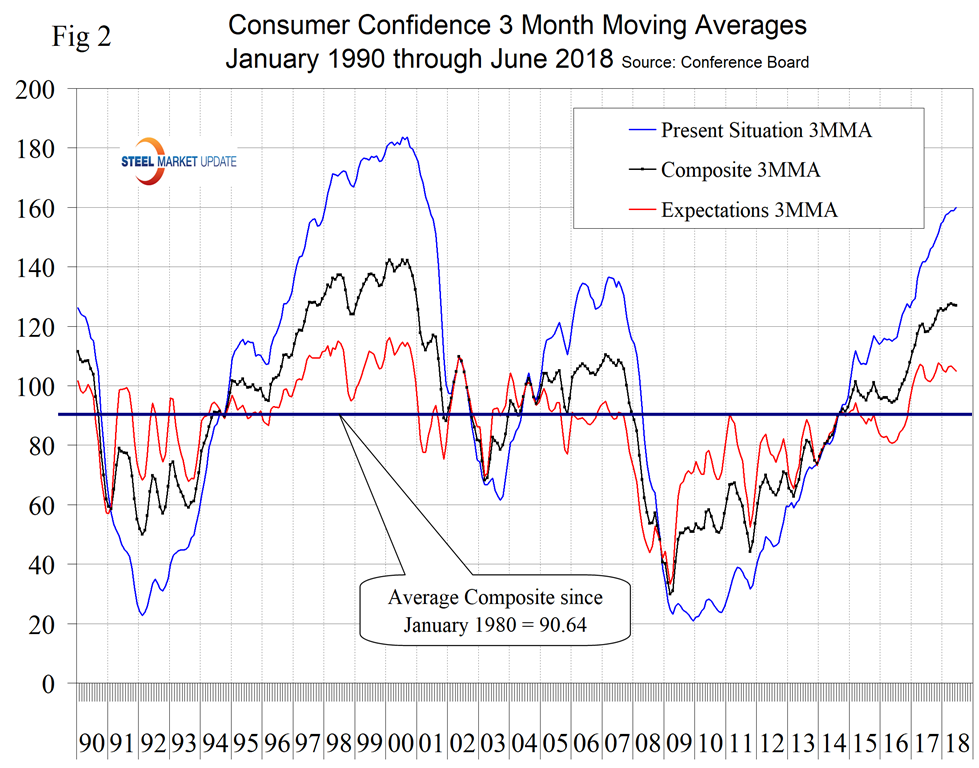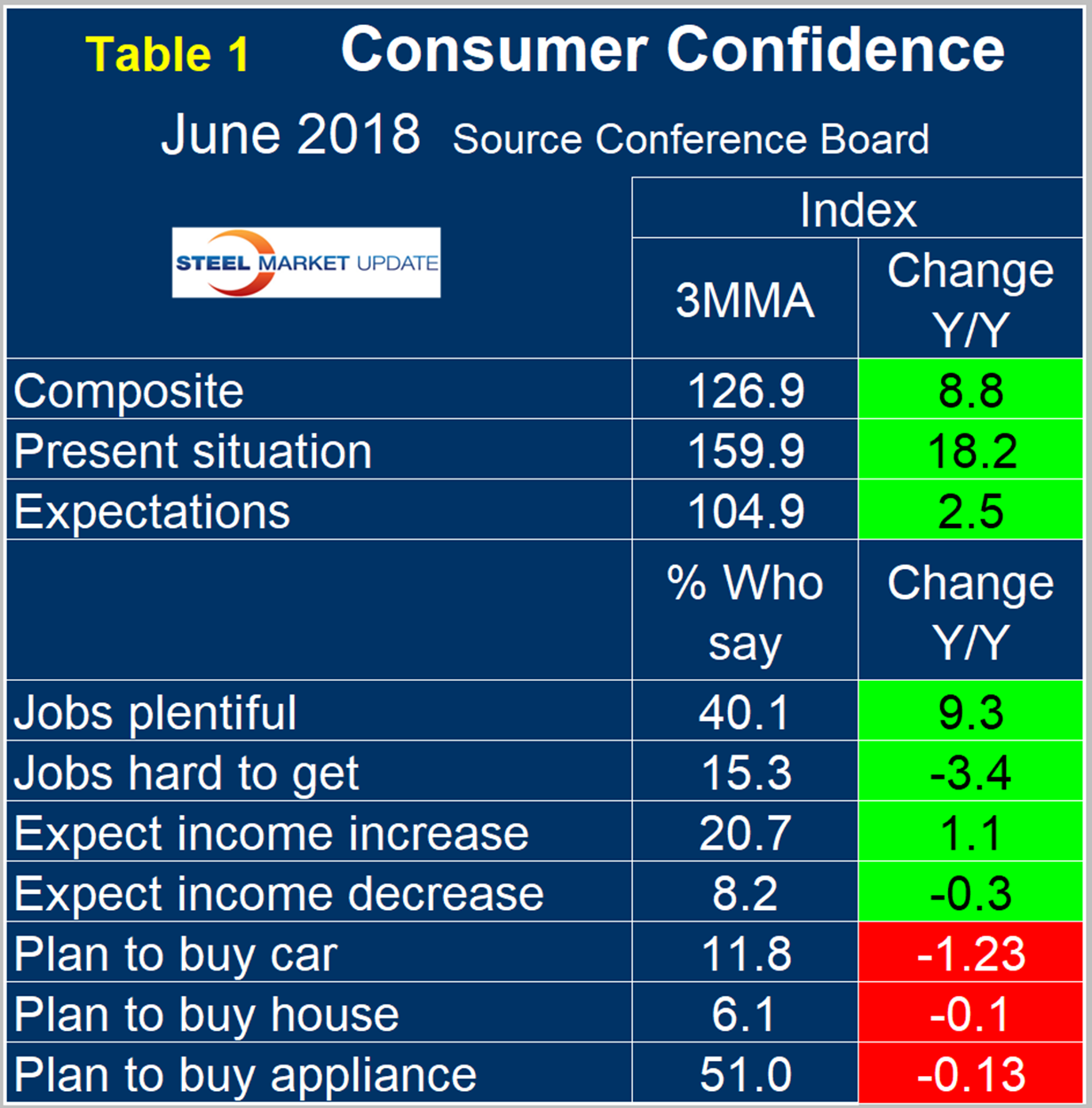Market Data

June 28, 2018
Consumer Confidence Declined But Remains Strong in June
Written by Peter Wright
Consumer confidence decreased in June and the three-month moving average (3MMA) declined for the second consecutive month, according to The Conference Board’s Consumer Confidence Survey. The composite value of consumer confidence in June was 126.4, down from 128.8 in May. The 3MMA decreased from 127.1 in May to 126.9 in June, which was 8.8 points higher than in June last year. We prefer to smooth the data with a moving average because of monthly volatility, which in the case of consumer confidence has been quite extreme since the beginning of 2016. The composite index is made up of two sub-indexes. These are the consumer’s view of the present situation and his or her expectations for the future. Both are above their nine-year trend line though drifting down into it (Figure 1).

The historical pattern of the 3MMA of the composite, the view of the present situation and expectations since January 1990 are shown in Figure 2.

All three measures are higher than they were at the pre-recession peak of 2007. The 3MMA of both components of the composite surged from mid-2016 until June 2017 when expectations briefly declined. Expectations have been relatively constant for over a year, but the consumer’s view of the present situation has been surging since December 2010. Comparing June 2018 with June 2017, the 3MMA of the present situation was up by 18.2 and expectations were up by 2.5 points (Table 1).

In June, the color designations in Table 1 deteriorated. In April, only plans to buy a car declined. In May, plans to buy a car and a house declined, and in June declines in car, house and appliance purchase intentions all declined. The consumer confidence report includes encouraging data on job availability and wage expectations. It reports on the proportion of people who find that jobs are hard to get and those who believe jobs are plentiful, and it measures those who expect a wage increase or a decrease. Since February 2011, both of the employment components have steadily improved. The difference between those finding jobs plentiful and hard to get has been over 20 percent in the last six months and in June 2018 stood at 25.1 percent. Expectations for wage increases have been less consistent, but the differential between those expecting an increase and those expecting a decrease has been in positive double digits since January 2017.
SMU Comment: Steel demand is dependent on the growth of GDP, which in turn is strongly influenced by consumer confidence and disposable income. The current consumer confidence report continues to be good in both these respects.
About The Conference Board: The Conference Board is a global, independent business membership and research association working in the public interest. Our mission is unique: To provide the world’s leading organizations with the practical knowledge they need to improve their performance and better serve society. The monthly Consumer Confidence Survey®, based on a probability-design random sample, is conducted for The Conference Board by Nielsen, a leading global provider of information and analytics, around what consumers buy and watch. The index is based on 1985 = 100. The composite value of consumer confidence combines the view of the present situation and of expectations for the next six months.







